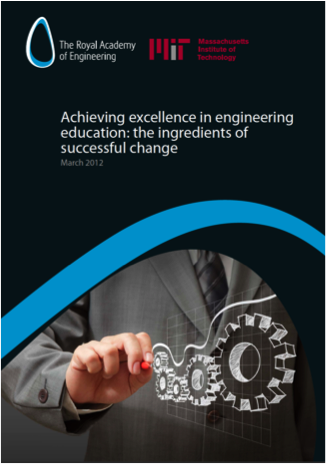Educational change in engineering
Commissioned by: MIT and the Royal Academy of Engineering
Project conducted: 2011 – 2012
Report published: March 2012
Change in undergraduate engineering education is urgently needed to ensure graduates remain equipped for the new and complex challenges of the 21st Century. However, the necessary transformation in the structure and delivery of undergraduate provision has yet to take place across the sector. There is a growing appreciation that the slow pace of change reflects the difficulties of catalysing and sustaining educational reform within engineering departments and schools. The case for reform is recognised; the challenge is to make it happen. The pressing issue for engineering education is not whether but how to change.
The report turns the spotlight on this issue. It examines how positive change can be achieved across the engineering curriculum, looking at how reform can be initiated, implemented and sustained within engineering departments and schools.
The report draws on the experiences of those involved in major programmes of engineering education reform across the world with the aim of distilling the common features of success and failure. The report findings are based on interviews with almost 200 individuals, from over 15 countries, each with first-hand experience of systemic curricular change in engineering.
To cite this report, please use: Graham, R. H. (2012). Achieving excellence in engineering education: the ingredients of successful change. London: Royal Academy of Engineering.
